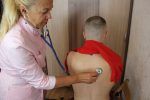In the state’s CNA competency evaluation exam, one of the tests you’ll complete is the skills test.
This skills test will assess your abilities to see if you have the means to work as a nursing assistant.
It will be a nerve-wracking experience for newly-trained nursing assistants, no doubt.
But with the clinical practice you had during your CNA training and the help of a skills practice test, you can amply prepare for the testing event.
On this page, you’ll learn…
- Why you should do a CNA skills practice test
- What CNA skills are being tested
- What to expect on the test date
- Helpful tips for the skills test
Table of Contents
Why Do a CNA Skills Practice Test?
Although you had experience with helping patients thanks to your training, it’s still best to practice more outside the healthcare facility.
The purpose of the skills test is to ensure you demonstrate the necessary skills to properly care for patients.
As such, doing a skills practice test using the Skills Listing given by the state’s test providers is essential.
In doing so, you’ll be able to…
- Get comfortable and familiar with the test provider’s skills test format
- Learn your strengths and weakness, thus focusing your study time on the areas you’re weak at
- Reinforce and consolidate your learnings
What CNA Skills Are Being Tested?
Understand that how you’ll do on the skills test reflects your learnings during the CNA training.
So to increase your chances of passing, preparedness is necessary.
Take the time to study and practice the nursing assistant skills listed below by each test provider.
Credentia
Practice the skills listed here if you’ll receive CNA certification from the following states:
|
|
Skills Listing
|
|
D&SDT-Headmaster
Practice the skills listed here if you’ll receive CNA certification from the following states:
|
|
Skills Listing
|
|
Prometric
Practice the skills listed here if you’ll receive CNA certification from the following states:
|
|
Skills Listing
|
|
What to Expect During the CNA Skills Test
In the skills test, a Registered Nurse (RN) or Licensed Practical Nurse (LPN) will serve as the examiner.
They will evaluate your performance in completing the nursing assistant skills assigned to you.
Depending on your state, you may be asked to demonstrate three to five skills within a given timeframe.
The Test Environment
The skills test will be held at the testing center, simulating an actual caregiving situation.
In other words, it will look similar to the patient’s room in a nursing facility.
And so…
- A fellow examinee or a mannequin will take up the role of the patient during the test
- All the equipment you need to perform the assigned skills is all in there
Before the Test
When the RN/LPN examiner calls your name, they will…
- Give you an instruction card listing the skills you’ll perform
- Inform you of the test duration for each assigned skill
- Allow you to look around the testing room and locate and try the equipment to be used
- Answer any of your questions
During the Test
Before each task, the RN/LPN examiner will give you a scenario to act out.
If you forgot the scene, you may ask the examiner to have it repeated anytime within the timeframe.
Do note that each skill has an assigned task that’s broken into a series of steps.
And so, you must remember to…
- Perform the steps in the order they’re listed on the card
- Complete all critical/key steps
All steps must be verbalized during your skills demonstration.
If you made a mistake, inform the RN/LPN examiner first before you correct that step so they can take note of the correction.
Also, if you believe it can help with the patient’s safety, you can ask the RN/LPN examiner to move from one spot to another.
Upon completing each skills task, review the steps one last time before saying, “I am done.”
Then once you’re done, the RN/LPN examiner will direct you to the relaxation area to wait for the next caregiving scenario.
After the Test
Once you’re finished with the skills test, the RN/LPN examiner will have you wash your hands.
It’s not part of the test, but a CNA’s best practice for the purpose of infection control.
Helpful Tips for the CNA Skills Test
On the day of your skills test, it’s not uncommon to be nervous and anxious.
That’s why here are a few tips to help you take the skills test with peace of mind and confidence.
Practice Often
Don’t just rely on your clinical experience at a nursing facility.
It’s best to spend time brushing up on your nursing assistant skills with friends or family.
At home, ask someone to act as the patient and the examiner as if you’re at the testing center.
This way, you can get used to the testing environment and be familiar with each skills task’s steps.
Plus, it helps with your muscle memory, which is useful during the test.
Memorize Handwashing Down to Pat
Handwashing is one of the mandatory skills that you must perform.
So it’s best to make sure that you’ve got the steps memorized completely and in the right order.
Know the Critical/Key Steps
Critical/key steps take up the majority of your score in the skills test.
And so, you must know and perform each one completely in order to pass a skill.
Do a Mental Checklist
Before performing a skill, do a mental checklist first of the steps needed to complete.
This will help you stay focused and calm, as well as accurately perform a skills task.
Always Ask Questions
Prior to the start of the skills test, you must raise to the RN/LPN examiner any questions you might have.
—Even the ones you might consider simple or basic questions.
This way, you’re aware of what you need to do and what to avoid as you’re performing the skills assigned.
Be Confident
Show confidence, even if you have to fake it.
It will show to the RN/LPN examiner that you…
- Know and understand the job of a nursing assistant
- Can safely provide nursing care to patients
Keep Your Motivation in Mind
You have your reasons for becoming a CNA, so keep that in mind as you’re doing the skills test.
When you do so, you’ll be driven to successfully pass it on the first try.
Frequently Asked Questions
You may have some questions that weren’t answered above.
So here are the frequently asked questions that you might find useful.
Is the CNA skills test hard?
It can be.
If you’re well-prepared, you might find it easy to pass on the first attempt.
What makes the CNA skills test difficult to pass?
As you know, the CNA Skills Listing has almost 30 skills that you must familiarize, but only three to five will be tested.
You’ll only which five you’ll perform on the day of the testing event.
As such, it’s quite challenging and nerve-wracking to prepare for.
How many times can you take the CNA skills test?
It depends on your state.
But typically, you can retake the skills test at least three times within the eligibility to test period.
How long does the CNA skills test take?
It depends on the test provider and the skill you’ve been assigned.
Usually, though, you have at least 30 minutes to complete all assigned skills.
What is the passing score?
To pass the skills test, you must completely perform all skills assigned, with…
- At least 80% of non-critical/key steps completed
- 100% critical/key steps accounted for
How much does it cost to take the CNA skills test?
It depends on the test provider.
Usually, for the skills test alone, you’ll pay at least $70 whether it’s your initial take or a retake.










